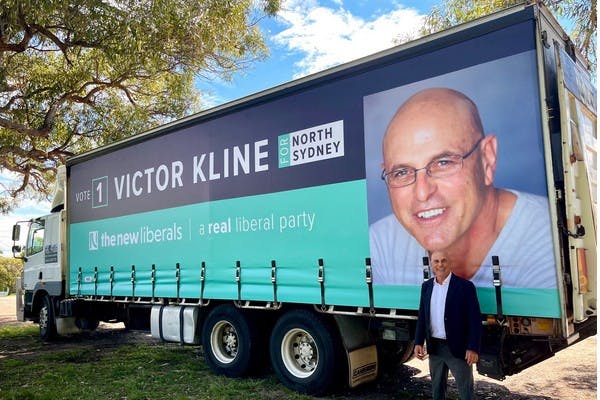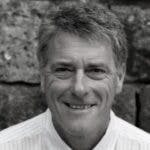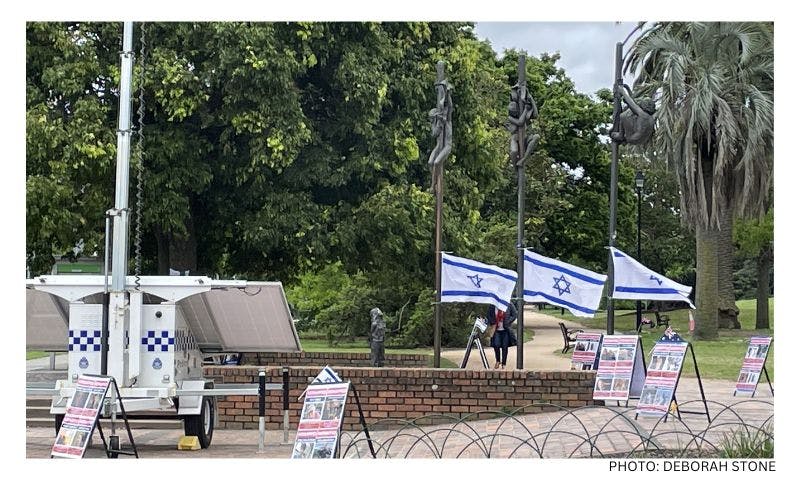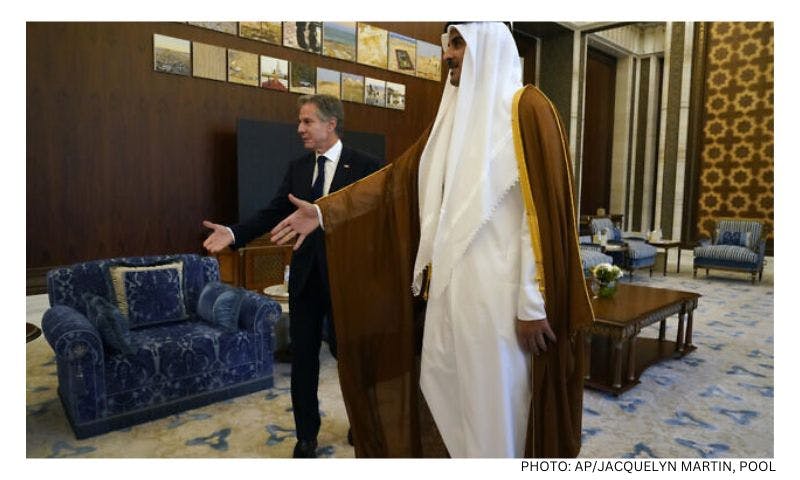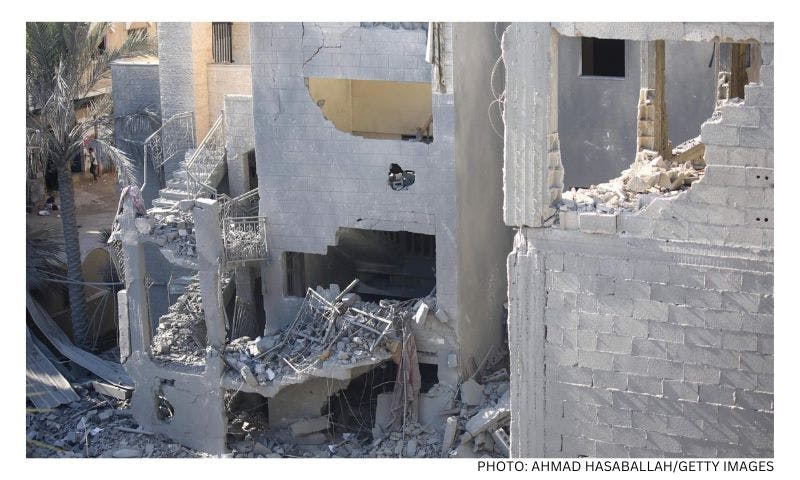Published: 3 February 2022
Last updated: 4 March 2024
STEVE MEACHAM: Incensed at the Coalition’s treatment of asylum seekers, Victor Kline founded a new liberal party based on liberalism’s compassionate values
“THE INCREDIBLE CORRUPTION of this Scott Morrison government is the worst we’ve seen in Australia since the Rum Rebellion,” says Victor Kline, co-founder and leader of the nation’s youngest political party.
“If we are fortunate enough to hold the balance of power after this year’s federal election, we’ll insist on a federal ICAC [corruption and integrity commission] with real teeth.
“The most important policy for any thinking Australian has to be urgent action to stop climate change.
“But our party’s number one policy in negotiations about the balance of power will be to insist on our vigorous federal ICAC model. Because without cleaning up the corruption in Australian politics, we can’t achieve anything on climate change.”
A self-admitted “political novice”, Kline, 70, confesses the party he has led since it formed in February 2019 has one strategic aim. “To knock off the Morrison government.”
The current coalition has been in power since 2013 when voters tired of Labor’s dancing horse carousel of Rudd, Gillard and Rudd - only to find it replaced by another fairground favourite, the laughing clowns of Abbott, Turnbull and Morrison.
Voter dissatisfaction is at an all-time low in most western democracies. So is membership of political parties. In Australia, both Labor and the Liberal/National coalition have succumbed to branch-stacking scandals because so many branches have so few genuine members.
Which is why the coalition’s apparatchiks were so eager to ban the name of the party Kline leads: The New Liberals.
Last year the Coalition took legal action against the new party’s name, arguing it was designed to cause confusion among conservative voters. The Coalition lost.
However, the Australian Electoral Commission then weighed in, recently ruling that although “The New Liberals” is perfectly acceptable on pamphlets, posters and publicity material, it has to be abbreviated to “TNL” on this year’s ballot papers.
Unsurprisingly, Australia’s Murdoch-dominated media has ignored TNL. “I don’t watch Sky After Dark,” Kline admits. “But I am told whenever there’s a mention of us, presenter Peta Credlin (best known as Tony Abbott’s former chief of staff) cuts them off with, ‘Don’t give them the oxygen!'”
Kline explains why he chose the controversial name for his fledgling party. “For the last half of the 20th century - from Menzies to Hawke - “both major parties, whatever they called themselves, represented something of ‘the small l liberal’ tradition which goes back two centuries.
“Australia’s most successful ‘small l liberal’ PM was Bob Hawke,” he adds, to emphasise the bipartisan nature of his political perspective.
The current Liberal Party of Australia has taken a perfectly good word and turned it into the exact opposite of what classic liberalism means.
“The current Liberal Party of Australia has taken a perfectly good word and turned it into the exact opposite of what classic liberalism means: compassion, justice, integrity, freedom of opportunity, rights of the individual - but also a strong sense of the role of government in making that happen,” says Kline.
“Liberalism is what best describes the New Liberals, and we weren’t going to be intimidated into not using it by a party which no longer represents it.”
Kline, who lives in Sydney’s Crows Nest, will be campaigning to be elected as the next MP for North Sydney, a safe Liberal seat since WWII except for the years it went to Ted Mack, an Independent who had been a popular local mayor.
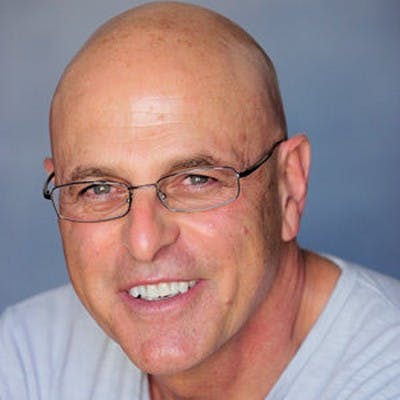
He describes the sitting Liberal member, Trent Zimmermann, as “a decent guy” who - unlike Tony Abbott in Sydney’s Warringah or Sophie Mirabella in Indi, Victoria - “isn’t a polarising character”, ripe for the plucking.
If Kline is elected - “and I’m a long shot in North Sydney, though the odds seem to be narrowing” - he’ll have one of the more unusual CVs in the new parliament.
Born in 1951 to a working-class family in Maroubra, in Sydney’s eastern suburbs, he became Sydney’s youngest barrister at the age of 22 in 1974, working as a federal prosecutor. Two years later, having moved to the Northern Territory, he switched sides to become a Legal Aid barrister.
My friends and I remember when politicians of both major parties used to fight over the best way of being humane to those fleeing persecution.
Kline’s 2013 memoir, The House at Anzac Parade, details his childhood, time teaching in a primary school in Papua New Guinea and dodging bullets in the Sri Lankan civil war. (He and his first wife, Gail adopted two orphaned twins in 1990, who are now mothers to their four granddaughters.)
But he’s also been a semi-professional actor (having played in everything from an off-Broadway production of Hedda Gabler to Seven’s Home & Away), the author of two novels, a playwright, theatrical director, legal journalist and editor of prestigious Australian legal journals (Federal Court Reports since 1990 and Federal Law Reports since 1995).
What made an over-achiever return to the bar in 2016 to provide pro bono assistance to those victims caught in the legal maelstrom of Australia’s much-criticised refugee policies?
Why would someone his age, with so many interests, a comfortable income and a happy second marriage (“Katharine is the love of my life”) found the Refugee Law Project in 2018? Or, with three like-minded friends, announce the creation of The New Liberals?
Perhaps his quixotic tilt at one of those modern wind farms - so derided by climate change deniers - might stem from his own family background?
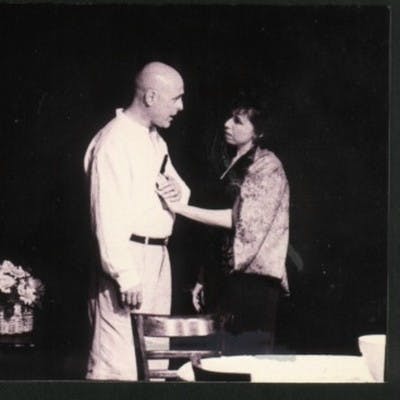
“My mother Joy was officially Church of England, but quite irreligious,” Kline says. “So were my Jewish grandfather Joseph and my father Leon Kleineman, who changed the family name to Kline when I was eight.
“My father would play at Monash Golf Club in Sydney and order a ham sandwich for lunch. I learned far more about Judaism from my Jewish friends at Sydney Boys High than I ever did from my family.
Yet both grandfather and father were refugees. “My grandfather was a foot soldier for the Czarist army in WW1, but was taken prisoner by the Germans,” Kline explains. “After the Russian Revolution in 1917, he fought for the White Russians against the Red Army.
“Like many other White Russians, he fled to Shanghai. My father was born there in 1921. When Mao Zedong’s communist army advanced towards Shanghai in 1949, the family had to flee again.
“The story we were told was that the Australian government sent a Jewish solicitor to Shanghai to select ‘appropriate’ Jewish immigrants. Apparently, the solicitor was corrupt, selecting those who could pay the most. Fortunately, my grandfather had money, which is how the Kline family arrived in Australia.”
The trigger for Kline’s late entry into politics was his experience of advising some of “the massive number of unrepresented asylum seekers being shunted though the legal system” since the Coalition government came to power in 2013.
His bête noire is the hard Right’s Peter Dutton, the former Home Affairs Minister who forced the Liberal party spill against the incumbent Malcom Turnbull which led to Morrison
becoming the Steven Bradbury of prime ministers in 2018: the last man standing once Julie Bishop slid out on the first lap of the ice rink.
“Dutton had this crazed, righteous mission to fight every asylum seeker trying to come into this country.
“People know the Coalition government spent $4 billion per annum on detention centres but I estimate Dutton spent another $4 billion per annum fighting every refugee case,” he says.
“I am almost 70, but my friends and I remember an Australia when politicians of both major parties used to fight over the best way of being humane to those fleeing persecution.”
Kline says TNL will field 22 candidates at the 2022 election, 12 for the House of Representatives and 10 for the Senate.
While he is reluctant to name any as having a better chance than others, any political insider would identify the party treasurer Jennifer Philip standing in Hughes, (currently held by the former Liberal turned Palmer United Party leader Craig Kelly), and economics Professor Steven Keen (TNL’s first choice on the NSW Senate ticket) as each-way bets.
We’re not fans of the Labor Party, especially under Anthony Albanese’s small target strategy.
All of the targeted electorates are traditional Liberal seats. No TNL candidates will stand in Labor or Green-held constituencies - undoubtedly playing into the hands of Coalition strategists inevitably portraying the new party as red or green wolves in sheep’s clothing.
Kline makes no apology. “We’re not fans of the Labor Party, especially under Anthony Albanese’s small target strategy. But we don’t want to waste our limited, mum and dad-funded resources.”
TNL is overwhelmingly funded by small donors, he says. “We declare all donations over $1000 so you can see those on the website. After that we get thousands of donations. Probably the average is around $50. “There are no millionaires backing us.”
This jibe is not just aimed at the obvious candidates - arch-conservative Rupert Murdoch, whose media empire has proven pivotal to so many Australian elections, or Clive Palmer, who reputedly spent $80 million at the last election to stop Labor from winning government.
It’s also a dig at millionaires who champion the environment. Step forward Graeme Wood and Simon Holmes à Court.
Wood, co-founder of the Wotif travel search engine, publicly queried whether the millions he has donated to the Greens over the years had been used effectively by the party leadership.
Holmes à Court - son of philanthropist and environmentalist Janet and her late husband Robert (Australia’s first billionaire businessman before he died in 1990) - launched Climate 200 in 2019, backing a stable of independent candidates.
The most prominent was Zali Stegall - Olympian, lawyer, mother and long-term local resident who famously defeated former PM Abbott in Warringah in Sydney’s northern beaches.
Kline says he would be more than happy with two members in the House and a couple of senators.
Climate 200 is funding even more independent candidates in 2022, targeting the same disaffected “small-l-liberals” as the TNL, sometimes in the same seats.
Traditional politicians would do a preference deal, ensuring voters whose first choice doesn’t get elected might still get a voice in parliament sharing their broad philosophy. Will that happen with TNL? “We haven’t discussed preference deals with anyone at this stage,” he told The Jewish Independent.
According to advisers Kline is not prepared to name: “there are four million moderate and disaffected Liberal voters in the country,” he says.
“I’ve met some in North Sydney. Many are well educated and well-heeled people but don’t see the point of being well educated or well heeled if their grandchildren have no planet to live on.”
Asked how many members the TNL hopes to get elected, Kline says he would be more than happy with “two in the House and a couple of senators”.
“This will be an election like no other in Australian history,” he insists. “The outcome will be a minority government with the balance of power being held by Independents, the Greens and - hopefully - us.”
Will TNL be around after this election if the Morrison government is defeated? “Yes, we are in for the long haul. We are aiming for government.”
